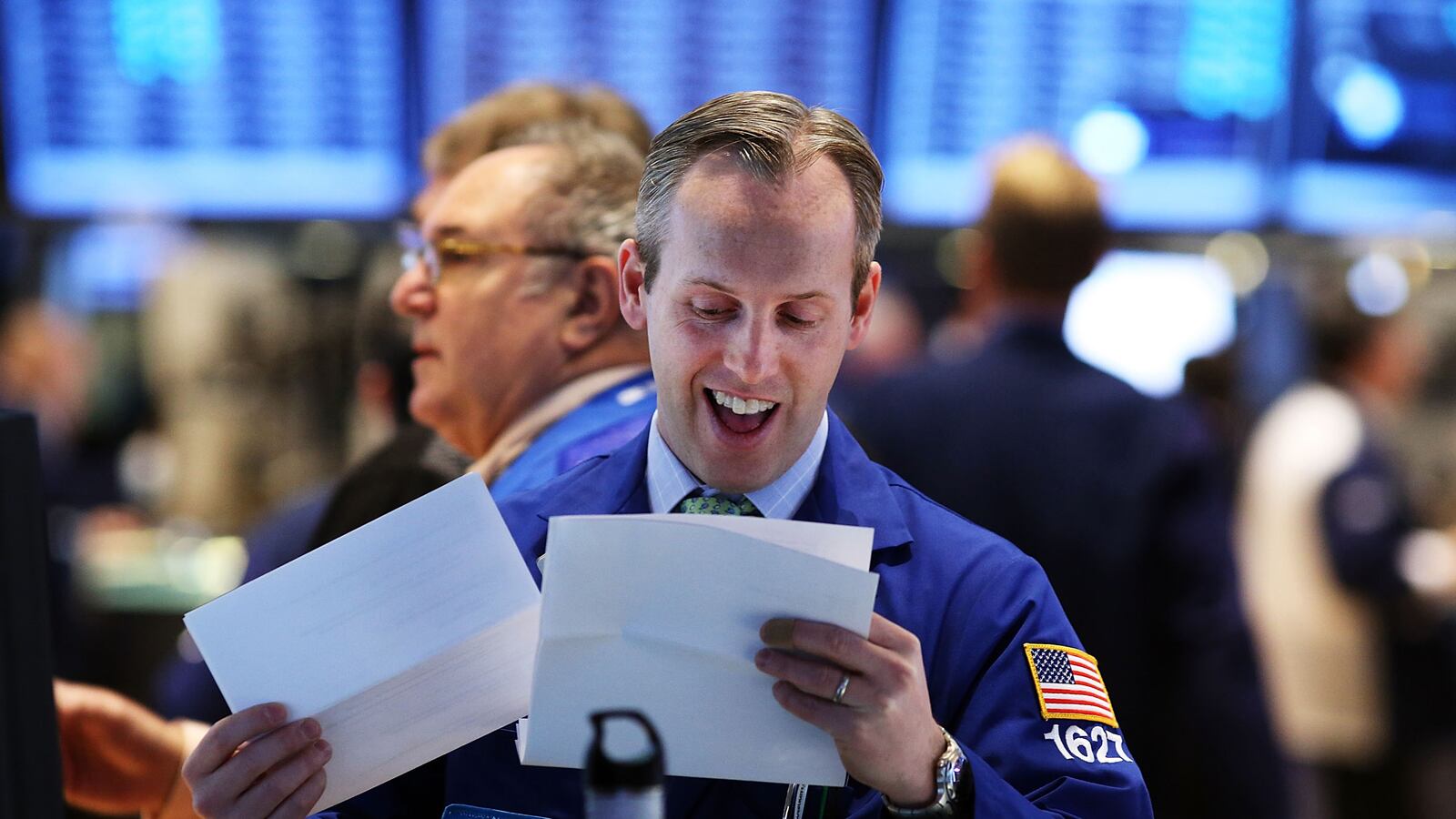In all of the negotiations and bluster over the fiscal cliff, one important issue was almost entirely absent: the potential effects for the economy. Yes, some diehard conservatives warned that without drastic steps to privatize part of Social Security and much of Medicare, our national debt will soon make us outcasts in global capital markets, a la Greece. But this feverish scenario never had any real economic basis. Far from shunning America’s public debt, worldwide investors throughout have been eager to lend the Treasury whatever it needs; Uncle Sam borrows for 10 years at an annual interest of less than two percent.

Diehard liberals, pointing to these interest rates, have sometimes insisted that we do not have to cut our deficits by much at all—or that we should leave spending alone while piling new taxes on high-income Americans. Now, it’s true that the new taxes being phased in as a result of the fiscal cliff deal shouldn’t affect the recovery—their dampening effect will be offset by the benefits of reducing the demands on federal borrowing. But this position ignores the basic economics. We have earned the confidence of global investors, which keeps interest rates low, precisely by addressing our deficits successfully whenever they threatened to swell the national debt. That’s what we did in the 1980s, and again in the 1990s.
The main imperative, once again, is for the U.S. to take care of its fiscal business in a reasonable manner. And it almost doesn’t matter how. Despite the protestations of partisan economists, the economy has been largely indifferent to whether we address these imbalances by cutting spending or raising taxes. Look at the experience of recent years. In 2011, after tortuous negotiations, a deal was struck for $1.2 trillion in spending cuts over 10 years. The markets said “well done,” and the economy plowed ahead and generally strengthened. Stage two was resolved in this week’s agreement to raise nearly $700 billion in new revenues over 10 years, including higher taxes on capital income. The markets are clearly satisfied with that, too, and the economy almost certainly will continue to strengthen—so long as we continue to make progress in some fashion.
Stage three will come in a few months—or perhaps next year—when the President and Congress will likely agree to trade modest entitlement changes for additional revenues raised through some version of corporate tax reform. (It will surely be accompanied by lots of kicking, screaming, and cursing.) The economy will be fine with that resolution as well. The fights over which taxes to raise and what spending will be cut certainly will affect specific industries and groups of Americans, with distinct political and distributional affects. But whatever those decisions are, the pace of growth, employment and incomes will be affected only marginally, if at all. In fact, the element of the recent fiscal cliff deal likely to make any difference to growth is the end of the temporary payroll tax reduction, which received hardly any attention at all.
This process has also been a quiet refutation of the slash-the-deficit chorus, which includes the Paul Ryan variety, who would upend entitlements to finance more tax cuts along with smaller deficits, and the “responsible budget” types, who would hike taxes and slash spending as much as possible in hopes of reducing the cost of business borrowing in years to come. The truth is, the economy does not usually respond well to drastic measures that confound people’s expectations. It may seem unsatisfying to forgo making a meal of the deficit and instead take a nibble here, another nibble a year later and a third nibble in another year or two. But this tortured course allows businesses and households to adjust, little by little. And that is usually the best course for the economy.
If the measured and reasoned steps we’ve seen in recent years are the standard for global investors, that means that the debt limit can never again become a negotiating chip in our fiscal politics. The last time Congressional uber-conservatives went down that path, in August 2011, it cost the U.S. government its triple-A rating from one of the three major credit-rating agencies. A government capable of letting lapse its own legal authority to issue new debt and pay interest on its existing debts is, by definition, one that cannot take care of its basic business. Moreover, the absolute confidence that U.S. government bonds will never fault is the reason they comprise much of the reserves of most of the world’s central banks and many of the assets of the world’s major financial institutions.
Global investors would be anything but indifferent to such contempt for predictable economic consequences, and the President is entirely right in declaring the debt ceiling off-the-table for future budget negotiations. A technical sovereign debt default triggered by a debt-ceiling stalemate would be a calamity for the American and world economies. Capital markets would freeze, interest rates would spike, stock and bonds market would slump, the dollar would swoon, and trillions of dollars in credit default swaps would be triggered. Republicans should be forewarned. Political leaders and a party that help bring about such a catastrophe—or even threaten it in a serious manner—will prove themselves unfit to govern for a long time.






